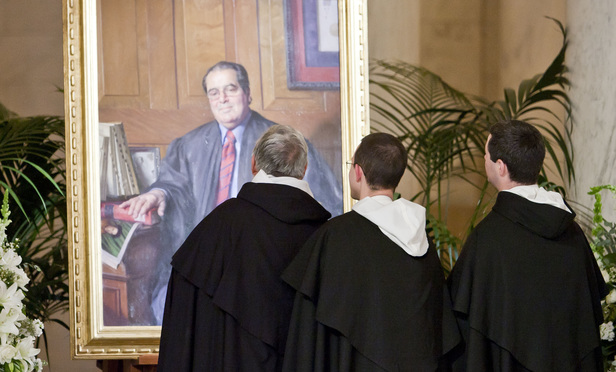What does the death of U.S. Supreme Court Justice Antonin Scalia mean for the future of class action litigation? The justice penned three majority opinions that shaped the class action landscape, but now the court must grapple with key issues that linger.
In 2011 Scalia authored the majority opinion in AT&T v. Concepcion, which held that arbitration agreements that require consumers to waive their class action rights are valid. A few months later, Scalia wrote for the majority in Wal-Mart v. Dukes, decertifying a nationwide employment class action alleging gender bias across the country. There Scalia found that the workers’ individual claims overwhelmed common, classwide issues. In Comcast v. Behrendin 2013, Scalia instructed lower courts to consider whether plaintiffs have a viable model to show classwide damages before certifying a class action.
This content has been archived. It is available through our partners, LexisNexis® and Bloomberg Law.
To view this content, please continue to their sites.
Not a Lexis Subscriber?
Subscribe Now
Not a Bloomberg Law Subscriber?
Subscribe Now
LexisNexis® and Bloomberg Law are third party online distributors of the broad collection of current and archived versions of ALM's legal news publications. LexisNexis® and Bloomberg Law customers are able to access and use ALM's content, including content from the National Law Journal, The American Lawyer, Legaltech News, The New York Law Journal, and Corporate Counsel, as well as other sources of legal information.
For questions call 1-877-256-2472 or contact us at [email protected]



